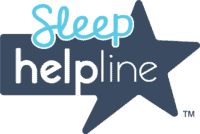Is napping an unwelcome symptom of narcolepsy or a helpful treatment? Got “nap shame?” We got together with special guests Dr. Luis Ortiz and Mary Murray to discuss in our Narcolepsy Nerd Alert live event: “Narcolepsy and Napping” on June 30th, 2021.
The Narcolepsy Nerd Alert series invites listeners to dive deeper into specific topics relevant to living with narcolepsy. To explore more topics related to living with narcolepsy, visit our Narcolepsy Nerd Alert page and check out corresponding toolkits available to download for free.





